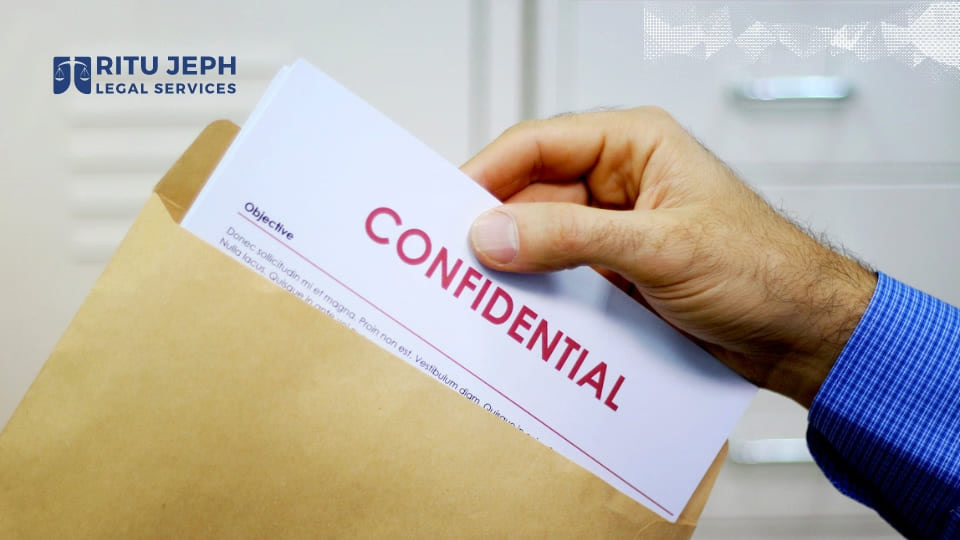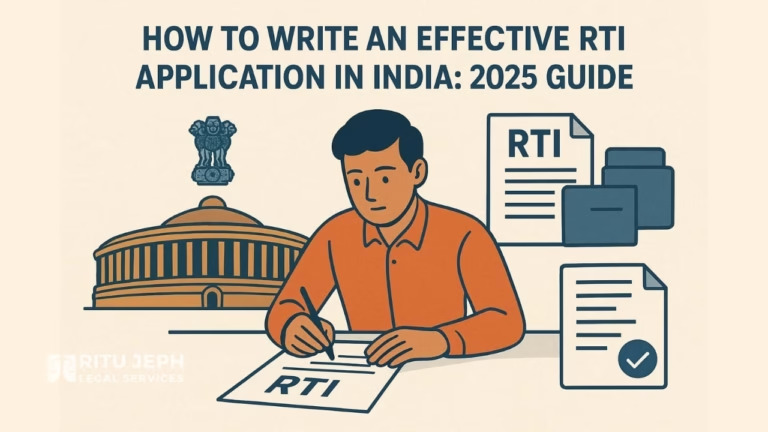Book Appointment Now

Legal Challenges of Non-Disclosure Agreements and Whistleblowing in AI and Corporate Governance
Learn how Non-Disclosure Agreements and Whistleblowing intersect in today's corporate world and explore the legal challenges of balancing confidentiality with employee rights. Discover key developments in India and beyond.
In today’s fast-evolving business environment, Non-Disclosure Agreements and Whistleblowing have become hot topics, particularly with the growth of technology-driven industries. Companies often use Non-Disclosure Agreements (NDAs) to protect confidential information and ensure that employees do not disclose trade secrets or proprietary data. But a recent case involving whistleblowers at OpenAI raised concerns about the misuse of NDAs to suppress legitimate whistleblowing efforts.
NDAs are standard contracts signed by employees at the time of joining, which ensure that sensitive company information is not leaked to competitors or the public. However, when NDAs are used to stifle communication between employees and regulatory authorities, they raise significant legal and ethical issues.
The whistleblowers from OpenAI claimed that the company’s NDAs violated rules set by the United States’ Securities and Exchange Commission (SEC). The agreements allegedly prohibited employees from reporting concerns to federal authorities without prior consent from the company, creating a chilling effect on potential whistleblowers. This has prompted a broader conversation on whether Non-Disclosure Agreements and Whistleblowing can coexist in a fair and balanced corporate environment.
ALSO READ: Addressing Legal Challenges in Classifying Workers in the Indian Gig Economy
Non-Disclosure Agreements and Whistleblowing
In India, there have been fewer instances of NDAs being legally challenged, but the principles established by courts in cases involving non-compete clauses have shown that Indian courts are generally unfavorable towards restrictive provisions that continue after employment. This opens the door to potential legal battles concerning NDAs in the future.
In recent news from India, Non-Disclosure Agreements and Whistleblowing have gained attention, particularly in the technology sector. A key example involves allegations in the startup ecosystem where employees have raised concerns about companies using NDAs to prevent the reporting of workplace misconduct, including harassment and unethical practices. As India’s tech industry rapidly grows, calls for better whistleblower protection have intensified. Amendments to the Companies Act, 2013, and enhanced SEBI guidelines are steps toward improving corporate transparency, but concerns remain about the misuse of NDAs to silence legitimate disclosures. This has sparked discussions about balancing confidentiality with employee rights in India’s evolving business landscape.
Corporate governance and transparency are essential pillars of ethical business practices. The Companies Act, 2013, and SEBI regulations in India mandate whistleblower policies that protect employees who raise genuine concerns. These policies ensure that employees can report wrongdoing without fear of retaliation, and that their identity and disclosures remain confidential. India’s Whistle Blowers Protection Act, 2014, further safeguards public sector employees from victimization when exposing misconduct, emphasizing the importance of transparency in the workplace.
The introduction of non-disparagement clauses in NDAs, which prohibit employees from making negative comments about their employers, has further complicated the legal landscape. While companies seek to protect their reputation, courts will balance this with the employee’s fundamental right to free speech. For example, during the #MeToo movement, NDAs were unable to prevent the flood of public disclosures regarding sexual harassment, demonstrating that when fundamental rights are at stake, NDAs cannot be used to silence individuals.
ALSO READ: Navigating the Conundrum Under Insolvency and Bankruptcy Code in Light of Recent Judgments
When it comes to public disclosures, Non-Disclosure Agreements cannot stop reports of workplace misconduct, harassment, or criminal activities. Contracts that attempt to restrict employees from disclosing such matters are likely to be invalid in the eyes of the law. Courts have consistently ruled that agreements which violate fundamental rights or legal protections are unenforceable.
For companies engaged in cutting-edge fields like Artificial Intelligence (AI), there is a clear need for responsible disclosure and governance. By embracing transparency and establishing strong partnerships with regulatory bodies, these companies can foster trust and mitigate long-term risks. Using NDAs to prevent whistleblowers from coming forward will only erode confidence and damage reputations.
In conclusion, Non-Disclosure Agreements and Whistleblowing are complex legal issues that require careful consideration. While NDAs are essential for protecting business interests, they should not be weaponized against employees’ rights to expose unethical behavior or misconduct. Companies that value transparency and good corporate governance must find a balance between protecting confidential information and allowing whistleblowers to play their vital role in ensuring accountability. By maintaining this balance, businesses can safeguard both their interests and the dignity of their employees.



